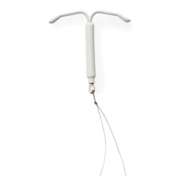A guide to birth control when you’re in the military
Active-duty servicemembers can get their birth control method without copays.

If you are an active-duty member of the U.S. military, here’s some great news: you have access to a wide range of birth control methods covered under your TRICARE plan. The less great news: not all methods are offered at every military treatment facility (MTF), especially during deployment.
What birth control methods are covered by TRICARE?
TRICARE is the health insurance program for military servicemembers and their families. It covers most birth control methods when you access them through a TRICARE-authorized health care provider. That includes the pill, the patch, the ring, the shot, the implant, IUDs, diaphragms, the cervical cap, sterilization for women and men, and emergency contraceptive (EC) pills.
Types of birth control you can buy at a drug store—like condoms and spermicide—typically aren’t covered. But before you pay cash for these methods, check with your specific MTF. Some military branches, clinics, or hospitals do cover these methods.
What methods are actually available at military treatment facilities?
Now for the catch: just because a method is covered by TRICARE does not mean you can get it at every MTF. TRICARE’s Basic Core Formulary is a list of medications that are required to be available at all full-service MTFs. Only two kinds of birth control are on the Basic Core Formulary:
- The pill. A number of types of birth control pills are available, but not all. All pills require a prescription.
- Emergency contraception (EC). Plan B One-Step or an equivalent generic is available without a prescription. If you need EC, you can get it from any military pharmacy.
If you want a birth control method other than the pill, check with your local MTF. If they don’t offer the method you want, they may refer you to another facility or to mail-order delivery. Your health care provider should be able to tell you all your options for getting the method you prefer.
Choosing a method that’s right for you (including when you’re deployed)
There are a lot of factors that go into choosing birth control. You may want a method that is low-maintenance or super private, one that’s extremely effective at preventing pregnancy, one that prevents STIs, or one that lightens your period or has other benefits.
Though you might not think you’ll need birth control before you deploy, many servicemembers find that they do need it once overseas. Once you’re deployed, it may be harder to access the full range of options. Here are some things to consider before deploying:
- Will you need refills of your method during your service? If so, can you get them for your entire deployment? When you are overseas, there may be more limited birth control options at your MTF. It might be a good idea to choose a method like the IUD or implant that can work for years without any refills or see if you can stock up on refills to bring along when you deploy.
- Will your method help you manage your periods? Methods like the pill and the ring can let you control your periods, and other methods (the shot, the implant, hormonal IUDs, and the progestin-only pill) may make periods lighter or go away. This can be helpful when deployed in case you face situations where it’s difficult to access a bathroom.
- Will the method be okay in your climate? If you’re deploying someplace very hot, you may have issues with the patch falling off and want to consider using another method instead.
- Will you be able to store your method in a refrigerator? The ring must be refrigerated before you use it, so be sure to confirm whether you’ll have refrigerator access for refills.
- Will the method work with your schedule? If your schedule is unpredictable when deployed, you may not want a method that needs daily maintenance.
- Will your method work with the level of privacy you will have? If you prefer a method that no one else can tell you are using, an IUD, the implant, or the shot are great options.
- If you decide you want an IUD, will your provider insert it for you? A study found that some servicewomen couldn’t get an IUD because their providers said they were too young or had never had kids. In fact, nobody should be denied an IUD for these reasons because IUDs are safe for people of all ages, with or without kids. If you’re interested in an IUD, make sure you see a provider with enough time before deploying to have the IUD inserted. If your provider says you can’t have an IUD because of your age or parental status, look for another provider.
Tips for getting the method you want
All active-duty servicemembers have a right to birth control through their TRICARE health care provider. If your health care provider does not bring up birth control during your medical visit, ask about it! One study found that some servicemembers didn’t ask about birth control because they worried they’d get in trouble for having sex. While there are some rules about sex and relationships in the military (e.g., between a married person and someone who is not their spouse, cohabitation by unmarried people, or in some cases between an officer and enlisted member), most consensual sex is permitted.
And a word for the wise: many people use birth control for reasons other than preventing pregnancy, like making their periods lighter, preventing menstrual migraines, and controlling acne, among others. So asking about birth control doesn’t mean you’ll have to talk about sex.
Whatever your reason for choosing to use birth control, it’s smart to make sure you’re covered before you deploy if possible. With the help of TRICARE, you can get access to a wide range of birth control methods without copays. If you face difficulties getting the method you want from your military provider, there are also ways to get birth control outside the military.
—
Kate Grindlay, MSPH, is an Associate at Ibis Reproductive Health. Learn more about her work. When she isn’t working to improve women’s health, Kate can be found hiking in the White Mountains in New Hampshire.
How do you feel about this article?

Heat up your weekends with our best sex tips and so much more.

